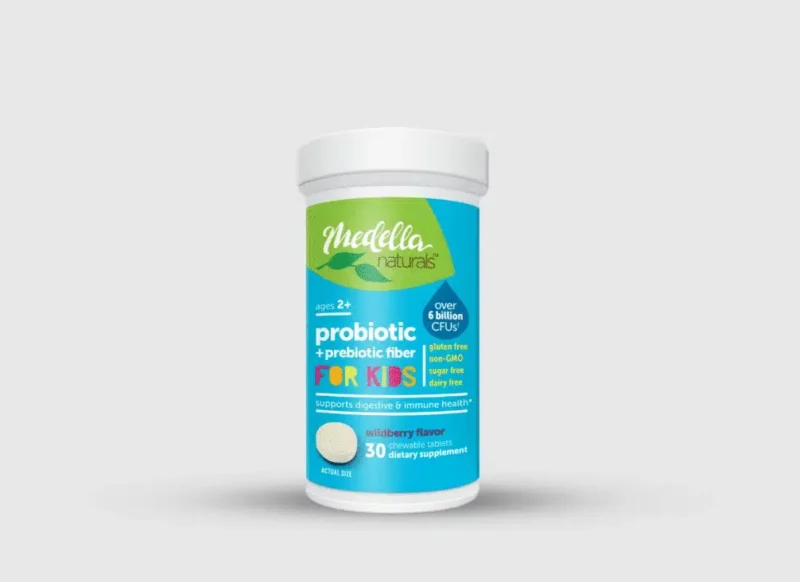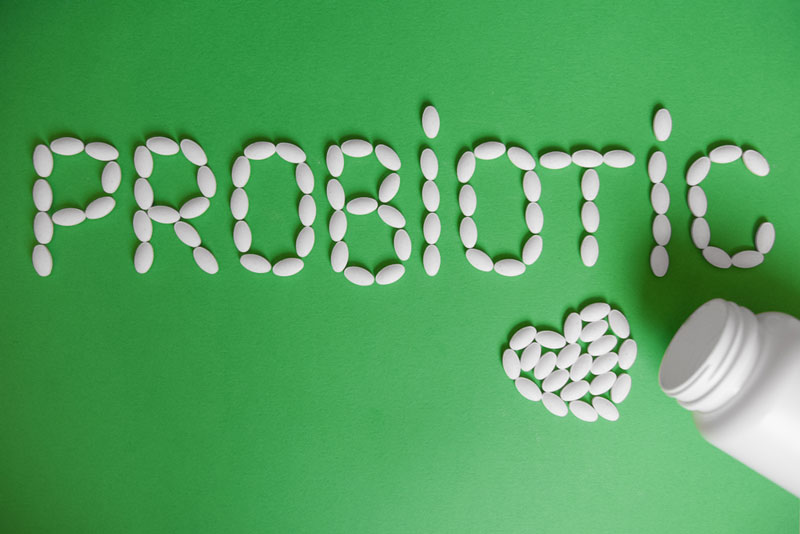Maintaining good health for our children has never been more crucial in today’s fast-paced world. As a parent, I constantly seek ways to ensure our little ones thrive and grow into healthy, happy individuals. One such avenue gaining traction in the realm of children’s health is the incorporation of probiotics into their daily routine. In this comprehensive guide, I will explore the world of probiotics for kids, delve into their significance, understand their benefits, and answer the pivotal question.
What Are Probiotics For Kids?
To grasp the significance of probiotics for kids, it’s essential to understand what probiotics are. Probiotics are living microorganisms, commonly known as “friendly” or “good” bacteria, that offer various health benefits when consumed in sufficient quantities. Beneficial bacteria are naturally present in our bodies, particularly in the gut, where they play an important role in maintaining a healthy and balanced digestive system.

Probiotics, including supplements, foods, and beverages, are available for children. They are specifically designed to introduce these friendly bacteria into the child’s system, aiding in restoring and maintaining a harmonious gut environment.
Importance of Probiotics for Kids

The digestive system is a vital component of a child’s overall health. It not only ensures the absorption of essential nutrients but also plays a substantial role in immune function and the prevention of various health issues. Here’s why probiotics are important for kids:
- Gut Health Enhancement: Probiotics help to maintain a healthy gut by boosting the number of good bacteria and maintaining a balanced microbiome. This balanced environment fosters optimal digestion and absorption of nutrients, reducing the risk of digestive disorders.
- Immune System Support: Most of the immune system resides in the gut. Probiotics strengthen the child’s immune system by maintaining a healthy gut microbiome, helping them ward off infections and illnesses more effectively.
- Digestive Issue Management: Probiotics are beneficial in managing common childhood digestive problems, such as constipation, diarrhea, and irritable bowel syndrome (IBS).
- Allergy Prevention: Research suggests that early exposure to probiotics may reduce the risk of developing allergies by modulating the immune response.
- Mental Health and Mood: Emerging studies indicate that a healthy gut microbiome, influenced by probiotics, may play a role in cognitive development, mood regulation, and the prevention of mood disorders.
- Antibiotic-Associated Issues: When children require antibiotics to treat infections, probiotics can help mitigate the disruption of gut flora caused by these medications.
What Are The Benefits Of Probiotics For Kids?
Extensive research has revealed that probiotics offer numerous health benefits and significantly impact overall health. They aid digestion, help prevent infectious diseases, and contribute to maintaining a healthy weight.
According to some studies, the benefits of probiotics are helping children with digestive problems. These issues may include:
- Constipation
- Inflammatory bowel disease
- Irritable bowel syndrome
- Infectious diarrhea
When Should I Give Probiotics To My Child?

Determining the right time to introduce probiotics to your child is a common concern among parents. While probiotics are generally safe for children, it’s essential to consider a few factors:
- Age: Many healthcare professionals recommend waiting until a child is at least one year old before introducing probiotics. Their digestive system is more developed and better equipped to handle probiotic supplementation at this age.
- Health Status: If your child is generally healthy and not experiencing any digestive issues or illnesses, probiotics may not be necessary. However, if your child frequently suffers from gastrointestinal problems, probiotics could be considered earlier with guidance from a healthcare provider.
- Specific Conditions: Children with certain medical conditions or compromised immune systems should only take probiotics under the supervision of a healthcare professional. Always consult with your child’s pediatrician before starting probiotics in such cases.
- Antibiotic Use: If your child is prescribed antibiotics, consider probiotics to counteract the potential disruption of gut flora. However, consult with your child’s healthcare provider for specific recommendations.
Medella Springs Kid’s Chewable Probiotics + Prebiotics
Kid’s Chewable Probiotic + Prebiotic is the ultimate solution to keep your growing children aged 2 and up healthy and active. The wild berry chewable tablets are designed to maintain healthy digestion by replenishing good bacteria, giving your child the best chance to thrive. Our proprietary blend is expertly crafted to support your child’s immune system and reduce excess gas, bloating, diarrhea, constipation, and abdominal discomfort. The kid’s formulation also contains prebiotic fiber that nourishes the healthy bacteria naturally occurring in GI tracts. Trust us to provide the best care for your child’s digestive health!
Are Probiotics Safe For Children?
Probiotics are safe for healthy children over 1 year old. But, children who are seriously ill or have a weakened immune system must consult their physician before taking probiotics. Children with a central line or port should avoid probiotics, which may lead to sepsis. Always talk to your physician before giving probiotics to your child with a port or main line.
Conclusion
Probiotics for kids hold immense potential in supporting their overall health and well-being. These beneficial bacteria contribute to digestive harmony, bolster the immune system, and influence mood and behavior. While probiotics are generally safe, it’s crucial to consider your child’s age, health status, and specific circumstances when deciding when and how to incorporate probiotics into their daily routine. Always seek guidance from healthcare to make informed choices that align with your child’s unique needs. The right approach can make probiotics valuable to your child’s journey towards a healthier future.
